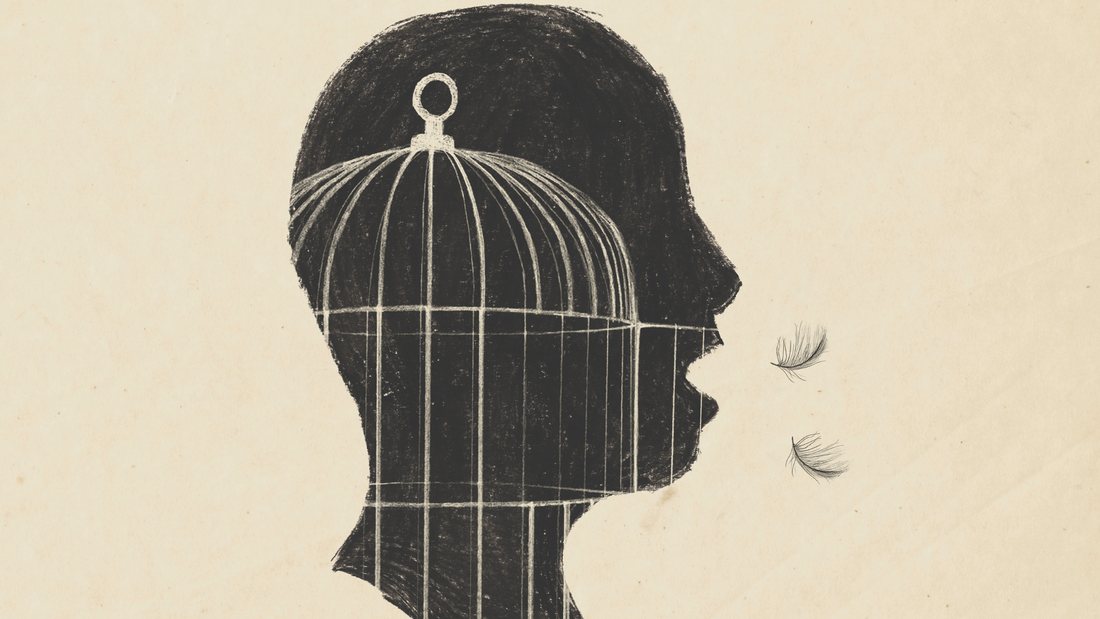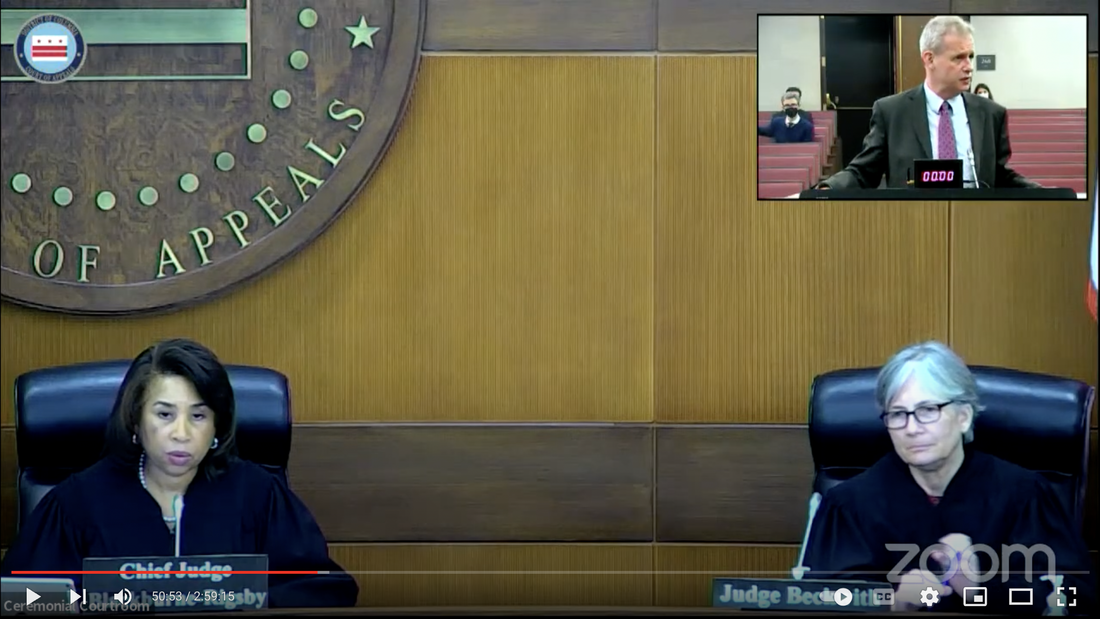|
The recent session of the U.S. Supreme Court will likely be remembered for two major rulings implicating fundamental separation of powers doctrine: Trump v. United States, establishing presumptive immunity from prosecution for official presidential acts; and Loper Bright Enterprises v. Raimondo, dispensing with the long-established “Chevron Two Step” granting deference to a federal agency’s interpretation of statutes. In both instances, the Court reaffirmed our constitutional system of checks and balances, including protection against encroachment on the powers and privileges of one branch of government by another.
Against the backdrop of those headline-dominating developments, the Supreme Court also took on several important First Amendment cases, with results that were constitutionally sound. Below are the highlights – and summaries – of the Court’s First Amendment jurisprudence released in recent weeks. Food and Drug Administration v. Alliance for Hippocratic Medicine In a unanimous ruling, the Supreme Court rejected a challenge to the Food and Drug Administration’s regulation of the abortion drug mifepristone. Little noticed by the media, the Court’s opinion also firmly nailed down the conscience right of physicians to abstain from participating in abortions and prescribing the drug. Writing for the Court, Justice Kavanaugh said that the Church Amendments, which prohibit the government from imposing requirements that violate the conscience rights of physicians and institutions, “allow doctors and other healthcare personnel to ‘refuse to perform or assist’ an abortion without punishment or discrimination from their employers.” From now on, any effort to restrict or violate the conscience rights of healers will go against the unanimous opinion of all nine justices of the U.S. Supreme Court. Vidal v. Elster The Supreme Court, in another unanimous decision, overturned a lower court ruling that found that the U.S. Patent and Trademark Office’s denial of an application to trademark a phrase including the name “Trump” violated the filer’s First Amendment rights. Writing for the Court, Justice Thomas wrote that “[o]ur courts have long recognized that trademarks containing names may be restricted.” But such trademark restrictions, while “content-based” must be “viewpoint neutral.” This opinion prevents commercial considerations to scissor out pieces of the national debate. While the decision rejected a novel First Amendment claim to a speech-restricting trademark, it affirms sound First Amendment principles and protects the speech of all others who would discuss and debate the virtues and vices of prominent public figures. The Court was right to refuse the endorsement of a government-granted monopoly on a phrase about a presidential candidate. NRA v. Vullo NRA v. Vullo – yet another unanimous opinion – cleared the way for the National Rifle Association to pursue a First Amendment claim against a New York insurance regulator who had twisted the arms of insurance companies and banks to blacklist the group. Maria Vullo, former superintendent of the New York State Department of Financial Services, met with Lloyd’s of London executives in 2018 to bring to their attention technical infractions that plagued the affinity insurance market in New York, unrelated to NRA business. Vullo told the executives that she would be “less interested” in pursuing these infractions “so long as Lloyd’s ceased providing insurance to gun groups.” She added that she would “focus” her enforcement actions “solely” on the syndicates with ties to the NRA, “and ignore other syndicates writing similar policies.” The Court found for the NRA, writing that, “[a]s alleged, Vullo’s communications with Lloyd’s can be reasonably understood as a threat or as an inducement. Either of those can be coercive.” The Supreme Court’s opinion vacates the Second Circuit’s ruling to the contrary and remands the case to allow the lawsuit to continue. As the Court wrote, “the critical takeaway is that the First Amendment prohibits government officials from wielding their power selectively to punish or suppress speech, directly or (as alleged here) through private intermediaries.” And we wholeheartedly agree – censorship by proxy is still government censorship. Moody v. NetChoice In one of two cases involving the nexus of government and social media, the Court seemed to punt on making a final decision on the constitutionality of laws from Florida and Texas restricting the ability of social media companies to regulate access to, and content on, their platforms. Many commentators believed the Court would resolve a split between the Fifth Circuit (upholding a Texas law restricting various forms of content moderation and imposing other obligations on social media platforms) and the Eleventh Circuit (which upheld the injunction against a Florida law regulating content and other activities by social media platforms and by other large internet services and websites). The Court’s ruling was expected to resolve the hot-button issue of whether Facebook and other major social media platforms can depost and deplatform. Instead, the Court found fault with the scope and precision of both the Fifth and the Eleventh Circuit opinions, vacating both of them and telling the lower courts to drill down on the varied details of both laws and be more precise as to the First Amendment issues posed by such different provisions. The opinion did, however, offer constructive guidance with ringing calls for stronger enforcement of First Amendment principles as they relate to the core activities of content moderation. The opinion, written by Justice Elena Kagan, declared that: “On the spectrum of dangers to free expression, there are few greater than allowing the government to change the speech of private actors in order to achieve its own conception of speech nirvana.” Murthy v. Missouri In what looked to be a major case regarding the limits of government “jawboning” to get private actors to restrict speech, the Court instead decided that Missouri, Louisiana, and five individuals whose views were targeted by the government for expressing misinformation could not demonstrate a sufficient connection between the government’s action and their ultimate deplatforming by private actors. Accordingly, the Court’s reasoning in this 6-3 decision is that the two states and five individuals lacked Article III standing to bring this suit. A case that could have defined the limits of government involvement in speech for the central media of our time was thus deflected on procedural grounds. Justice Samuel Alito, in a fiery dissent signed by Justices Clarence Thomas and Neil Gorsuch, criticized the punt, calling Murthy v. Missouri “one of the most important free speech cases to reach this Court in years.” Fortunately, NRA v. Vullo, discussed above, sets a solid baseline against government efforts to pressure private actors to do the government’s dirty work in suppressing speech the government does not like. Later cases will, we hope, expand upon that base. Secret communications from the government to the platforms to take down one post or another is inherently suspect under the Constitution and likely to lead us to a very un-American place. Let us hope that the Court selects a case in which it accepts the standing of the plaintiffs in order to give the government, and our society, a rule to live by. Gonzalez v. Trevino Protect The 1st has reported on the case of Sylvia Gonzalez, a former Castle Hills, Texas, council member who was arrested for allegedly tampering with government records back in 2019. In fact, she merely misplaced them, and was subsequently arrested, handcuffed, and detained in what was likely a retaliatory arrest for criticizing the city manager. In turn, Gonzalez brought suit. Gonzalez’s complaint noted that she was the only person charged in the past 10 years under the state’s government records law for temporarily misplacing government documents. In 2019’s Nieves v. Bartlett, the Supreme Court found that a plaintiff can generally bring a federal civil rights claim alleging retaliation if they can show that police did not have probable cause. The Court also allowed suit by plaintiffs claiming retaliatory arrests if they could show that others who engaged in the same supposedly illegal conduct, but who did not engage in protected but disfavored speech, were not arrested. The U.S. Court of Appeals for the Fifth Circuit threw out Gonzalez’s case, finding that she would have had to offer examples of those who had mishandled a government petition in the same way that she had but – unlike her – were not arrested. The Supreme Court, by contrast, found that, “[a]lthough the Nieves exception is slim, the demand for virtually identical and identifiable comparators goes too far.” The Court thus made it a bit easier for the victims of First Amendment retaliation to sue government officials who would punish people for disfavored speech. The controversy will now go back to the Fifth Circuit for reconsideration. *** While the Court avoided some potentially landmark decisions on procedural grounds, and offered a mixed bag of decisions concerning plaintiffs’ ability to obtain redress against potential First Amendment violations, the majority consistently showed a strong desire to protect First Amendment principles – shielding people and private organizations from government-compelled speech. UPDATE: Eleventh Circuit Permanently Enjoins Unconstitutional Ban on Religious Advertising Protect The 1st has long followed a First Amendment legal struggle between the Orthodox synagogue Young Israel of Tampa and the Hillsborough Area Regional Transit Authority (HART). That public authority had rejected Young Israel’s efforts to place advertisements for its “Chanukah on Ice” event on HART vehicles and bus shelters. The U.S. Court of Appeals for the Eleventh Circuit has now weighed in, permanently enjoining HART’s policy prohibiting ads that “promote a religious faith or religious organization.”
This case is important on multiple fronts. First, HART’s policy represents unconstitutional – and unreasonable – viewpoint discrimination because it bans religious speech on the sole basis of its religious character. It presents the troubling implication that if we can ban religious advertisements in public transit areas solely because they are religious, what’s to stop local governments from banning religious speech in public parks or other long-observed public venues of free speech? Further, the case represents a milestone in First Amendment jurisprudence because it has resulted in a permanent injunction on continued implementation of the policy as written. As we wrote in our amicus brief: “First Amendment rights are fundamental rights essential to every other form of freedom. As a result, First Amendment rights warrant special protection. Because courts cannot enjoin conduct and do not ‘strike down’ unconstitutional laws, a court cannot adequately protect First Amendment interests without including prohibitions against future illegal conduct in its injunction. “Without such preventative relief, governments would be free to repeat the same constitutional violation in the future. Any resolution of this case that fails to prevent future harm does not adequately vindicate the First Amendment.” Earlier, a district court had come down on the side of Young Israel, issuing a permanent injunction forbidding HART from “rejecting any advertisement on the ground that the advertisement primarily promotes a religious faith or religious organization.” On appeal, the Eleventh Circuit likewise upheld that permanent injunction, though on slightly different grounds, reasoning that “….HART’s policy, even if viewpoint neutral, is unreasonable due to a lack of objective and workable standards.” Indeed, the court found that HART has “no specific training or written guidance to interpret its . . . policy.” Internal review of religious advertisements is subject to the whims of the reviewers, and HART makes no attempt to inform its employees of any “workable norms” that might help them make an objective determination of the policy’s application. The Eleventh Circuit’s ruling thus “‘means that there is no circumstance in which this particular ban on [religious] advertising could ever be lawful.’” Presumably, HART could attempt to come up with a narrowed policy in the future. For now, we are pleased with and applaud the appellate ruling, which permanently protects Young Israel’s First Amendment rights vis à vis this policy – now and into the future. Mashaud v. Boone, Court Opinion Cites Eugene Volokh, Protect The 1st In October, famed legal scholar and law professor Eugene Volokh demonstrated to an en banc hearing of the highest court in the District of Columbia that a Washington, D.C., anti-stalking statute that outlaws communications that inflict “significant mental suffering or distress” is overbroad, and thus violates the First Amendment.
Today, the D.C. Court of Appeals issued an opinion in Mashaud v. Boone in agreement with Volokh, who represented Protect The 1st as an amicus in this case. The court also agreed with Volokh’s contention that the court should narrow the law to speech that fits within First Amendment exceptions long recognized by courts – threats, obscenity, defamation, fraud, incitement, and speech integral to criminal conduct. The law in this case, D.C.’s anti-stalking statute, “prohibits any speech that one should know would cause another to feel ‘seriously alarmed, disturbed, or frightened” or suffer “emotional distress.” The court vacated a lower court ruling that held an aggrieved husband liable for emails and social media posts that embarrassed a man who had conducted an extramarital affair with his wife. The court based its reasoning in part on demonstrations by Volokh, Protect The 1st, and other amici who “argue the statute is constitutionally overbroad and would need to be struck down if it is not susceptible to a narrowing construction.” The court found that emotionally distressing speech as a category could subsume much speech that is necessary: “Doctors deliver life-shattering prognoses that surely send reasonable people to suffer emotional tailspins of distress. Spouses knowingly inflict emotional distress by revealing longstanding paramours and demanding divorce. Police officers deliver news of loved ones having been killed. Judges pronounce death sentences. Employers tell staff that they are fired. They all know, or should know, the extraordinary distress their messages bring, and so fall within the statute’s prohibitions. Distressing speech is an important and often valuable part of life.” The court turned to political communication at the highest rung of First Amendment-protected speech. Activists, from advocates of animal rights to the pro-life position on abortion, often hurl insulting words or graphic images. “Both speak on issues of public concern and are therefore entitled to the strongest First Amendment protections” despite the emotional distress such statements and images may inflict. Thus, the court reasoned, “a statute that prohibits speech indiscriminately based solely on its propensity for causing such distress is a constitutional nonstarter.” Perhaps the court’s take on speech can be reduced to a quote from a 1973 U.S. Supreme Court decision, “the First Amendment needs breathing space.” As Volokh has pointed out, the court did not strike down the D.C. law, but narrowed it to those discrete categories of speech that fall outside the scope of the First Amendment’s protection. “We are overjoyed at this opinion from the Court of Appeals,” said Gene Schaerr, general counsel of PT1st. “We are proud to have been ably represented by Eugene Volokh and to have help vindicate the First Amendment’s protection against any laws that encroach on the freedom of speech.” Eugene Volokh Represents Protect The 1st Eugene Volokh, famed legal scholar and professor of law at UCLA, appeared before the judges of the D.C. Court of Appeals in Mashaud v. Boone. The result (go to 50:50 mark) is 26 minutes of rich discussion about the First Amendment and its limits.
The court’s en banc hearing examines the District of Columbia anti-stalking statute that makes it a crime to (among other things) “directly or indirectly … in person or by any means, on two or more occasions” communicate “about another individual” where the speaker “should have known” that communications would cause “significant mental suffering or distress.” Judge Catherine Friend Easterly noted that this provision could apply to “every high school student in the District of Columbia,” to journalists and even to the court itself, since the court’s opinions often publicize unpleasant facts or allegations, thus causing significant emotional distress. The facts of Mashaud are indeed emotional. A distraught husband learned that his wife, who worked at a firm as an intern, had an affair with a superior. The husband informed the company’s HR department about the extramarital affair, made posts on Facebook, and emailed the superior’s colleagues, family, and friends about it. Volokh, Protect The 1st Senior Legal Advisor, argued that to avoid “overbreadth” and “vagueness” the court should limit the law to speech that fits within First Amendment exceptions long recognized by courts – such as fighting words, obscenity, threats, and fraud. To this he might also add narrow categories of highly sensitive personal information, such as Social Security numbers or where one’s children go to school. Volokh cited Organization for a Better Austin v. Keefe, in which the Supreme Court reversed a lower court ruling on First Amendment grounds. In that case, the Court allowed civil rights activists to distribute leaflets with a realtor’s phone number and urged people to call him to complain about his practices. Given that precedent, how could something as vague and broad as the DC statute stand? Judge Easterly asked Volokh why the court should recognize these exceptions instead of just sending the whole section of that law regarding speech back to the DC council to revise. Volokh, happy to welcome that idea, noted that if the court wasn’t going to void that section of the law, it should at least limit its provisions to these well-established exceptions. Volokh’s section of the oral arguments ends with a fascinating discussion about the enduring strength of the First Amendment despite the fact, Volokh noted, that the amendment is itself vague. |
Archives
June 2024
Categories
All
|
ABOUT |
ISSUES |
TAKE ACTION |






 RSS Feed
RSS Feed